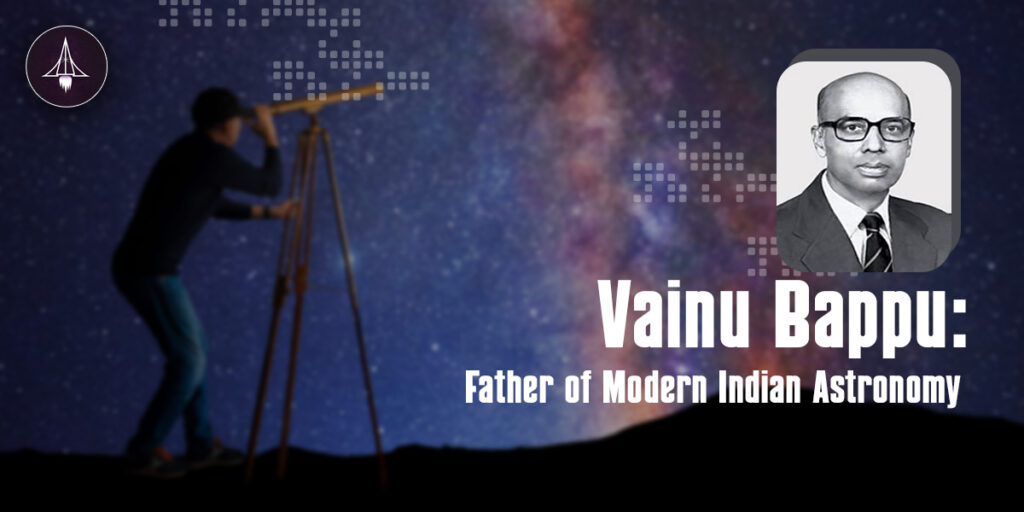Known as the “Father of Modern Indian Astronomy,” this is the story of the only Indian to have a comet and an asteroid named after him.
Manali Kallat Vainu Bappu was an Indian astronomer and the President of International Astronomical Union, who was instrumental in establishing the @Indian Institute of Astrophysics (IIA), Bengaluru.
On August 10, 1927, Manali Kallat Vainu Bappu was born as the son of a senior astronomer at the Nizamiah Observatory in Hyderabad.
Despite his versatile talents, his true passion was ignited by astronomy, a field to which he was exposed from an early age. Even during his undergraduate years, his enthusiasm for astronomy was evident as he published papers on observations of variable stars.
Following his completion of a Master’s degree in Physics from Madras University, Vainu Bappu secured a scholarship to the esteemed @Harvard University.
His impactful work led to him becoming President of the International Astronomical Union from 1979 to 1982. On July 2, 1949, he discovered a comet while photographing the night sky. Confirming the find, his professor Bart Bok and colleague Gordon Newkirk calculated its orbit, revealing a 60,000-year recurrence period.
The comet was named the Bappu-Bok-Newkirk comet (C/1949N1) by the International Astronomical Union. Bappu also received the Donohoe Comet Medal from the Astronomical Society of the Pacific.
Despite receiving job offers from Europe and the US, including one from Harvard, Bappu made the conscious decision to decline them and return to India.
Following a fellowship with the National Science Academy, Bappu assumed the role of Chief Astronomer at the Uttar Pradesh State Observatory in Varanasi.
Bappu relocated the observatory to Manora Peak near Nainital due to pollution in Varanasi, and he not only equipped it with top-notch instruments but also trained young astronomers.
At 32, he became the Director of the Kodaikanal solar observatory, expanding it to stellar observations. He established a stellar observatory in Tamil Nadu, initiating observations with a 38-cm telescope.
In 1972, a 102-cm telescope from Germany was added, reflecting Bappu’s dedication. This telescope led to discovering Ganymede’s atmosphere and confirming Uranus’s rings, moving towards Bappu’s vision of a significant stellar observatory in India.
Fate snatched him away at a rather young age of 55, when he suddenly passed away on August 19, 1982 in Munich, Germany. Despite his significant contributions and accomplishments, it’s unfortunate that his recognition might not be as widespread as it should be.
Follow @SciAstra for your daily dose of inspiration and share this to help us in our mission to build scientists of tomorrow!
Check Also:-
Meghnad Saha: The Forgotten Hero of Modern India
The Inspiring Life and Legacy of Dr. Salim Ali, The Bird Man of India
The forgotten hero of millions: Kalpana Chawla
Vikram Sarabhai: Astounding inspiration in the realm of Science
Who was the Missile Women of India? Learn Here





